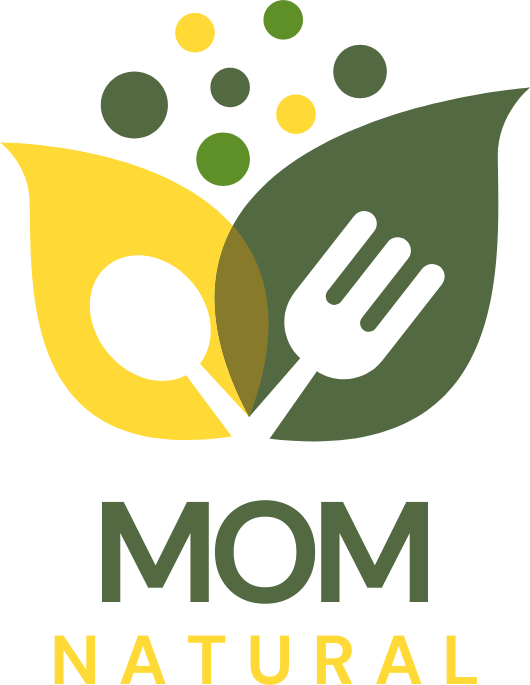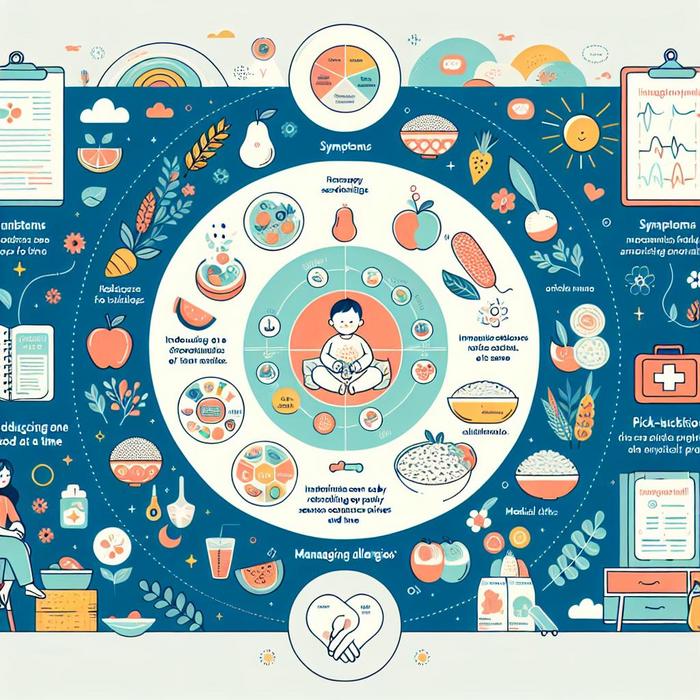Recognizing Symptoms of Baby Food Sensitivities
Days after you introduce your little one to a new food, they might start to exhibit some odd symptoms. It’s essential to understand the signs and symptoms of baby food sensitivities. By recognizing these early, you can take the right steps towards managing allergies in babies.
What are Baby Food Sensitivities?
Baby food sensitivities are negative reactions to food proteins that are not considered a true food allergy. These reactions are less severe but can cause discomfort and distress to your baby. Recognizing these symptoms is your first line of defense in protecting your child.
According to eatright.org, common symptoms of baby food sensitivities include:
- Gastrointestinal issues such as diarrhea or constipation
- Skin reactions like eczema or rash
- Respiratory problems such as wheezing or coughing
- Behavioral changes like irritability or excessive crying after feeding
How to Respond to Symptoms
If you notice these signs, it’s vital to take action. Experts from Children’s Hospital Los Angeles recommend that parents immediately stop feeding the suspected food to their baby and consult a healthcare professional.
Safe Food Practices for Babies
Managing your baby’s food sensitivities starts with practicing safe food introduction and maintaining a well-balanced diet. The Australasian Society of Clinical Immunology and Allergy recommends the following safe food practices:
- Introduced new foods one at a time, spaced out every 3-4 days
- Start with low allergy risk foods before introducing higher risk foods
- Continue to breastfeed as you introduce new foods
- Ensure a balanced diet with a variety of food groups
Managing Allergies: Precautions and Care
While food sensitivities and allergies may sound intimidating, remember that they are manageable. Regular monitoring, educating yourself about common allergens, and following allergen avoidance strategies can help keep your baby safe and healthy.
Our personal approach to managing our baby’s food sensitivities involved creating a relaxed meal environment, practicing patience, and using helpful techniques from biomimetic feeding when needed.
Remember, every child is different, and what works for one may not work for another. Keep exploring various tips and techniques, and most importantly, trust your instincts.
Support for Parents
Parents dealing with baby food sensitivities and allergies aren’t alone. Many resources can provide information and support. Sites like UnlockFood.ca offer articles and advice on infant feeding that can be invaluable for parents navigating this journey.
Looking Ahead: Next Steps in Managing Baby Food Sensitivities
As we continue our journey in dealing with our baby’s food sensitivities, we’ll be sharing more tips, advice, and experiences to help other parents navigate this path.
Identifying Common Food Triggers
Identifying common food triggers is a crucial step in managing food sensitivities in babies. Certain foods are known for causing more reactions than others. According to the American College of Allergy, Asthma, and Immunology, common food triggers include:
- Cow’s milk
- Eggs
- Peanuts
- Tree nuts such as almonds and cashews
- Fish
- Shellfish
- Soy
- Wheat
Keep in mind that your baby can have a sensitivity or allergy to any food. It’s always best to introduce new foods one at a time and watch for any reactions.
Peanut Allergy and Early Introduction
Peanut allergies are among the most serious of food allergies, and they tend to be lifelong. However, recent studies suggest that early exposure to peanuts might help prevent allergies. A paper published by the Massachusetts General Hospital for Children recommends introducing peanuts to infants as early as 4-6 months to reduce allergies’ risk.
Breastfeeding and Baby Food Sensitivities
You might consider whether there’s something in your diet causing your baby’s food sensitivity. According to the Nebraska Department of Health and Human Services, it’s relatively rare for infants to react to something their mothers have eaten. However, if your baby is sensitive or allergic to a food you consume often, it may show up in your breast milk and cause a reaction.
Testing and Evaluation
When baby food sensitivities are suspected, healthcare professionals might recommend different types of tests or evaluations. These can include:
- Skin tests
- Blood tests
- Food challenge tests
- Dietary review and assessment
Remember, it’s essential to work with a healthcare professional when it comes to diagnosing and managing your baby’s food sensitivities.
In Conclusion: Ongoing Support
It cannot be stressed enough how important your healthcare provider should be in your journey. Regular check-ups, open communication, and ongoing trust with your pediatrician or allergist are vital in managing your baby’s food sensitivities effectively.
As a parent, your journey doesn’t stop with managing the present. It’s equally important to plan for the future. This might involve researching schools with accommodating allergy policies or educating family and caregivers about your child’s dietary restrictions.
Looking forward, we plan to keep sharing more actionable tips and advice to help parents navigate the complexities of baby food sensitivities. We’ll also be talking about our experience with food sensitivity tests, the role of dietitians and nutritionists in managing food sensitivities, and how food sensitivities affected our baby’s growth and development.
Remember, every baby’s journey with food sensitivities is unique. The key is patience, observation, and being equipped with the correct information.

